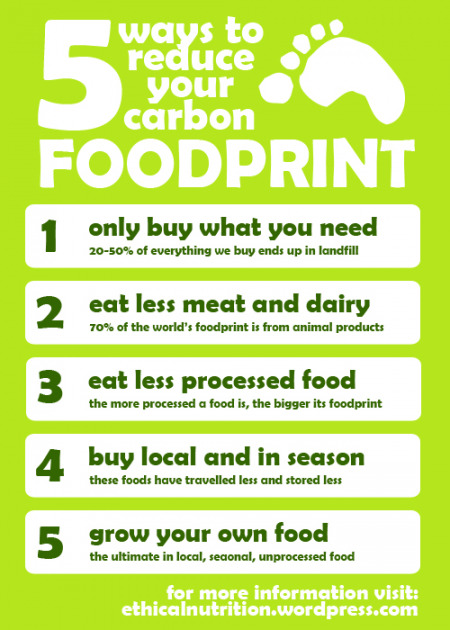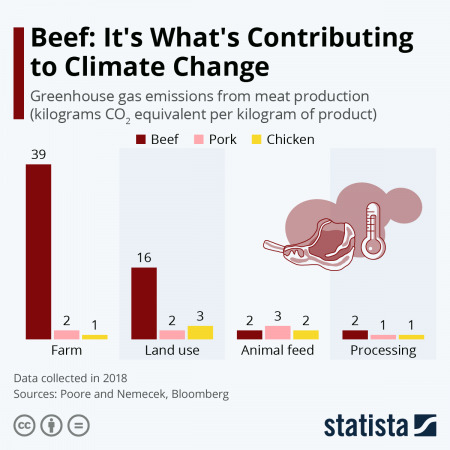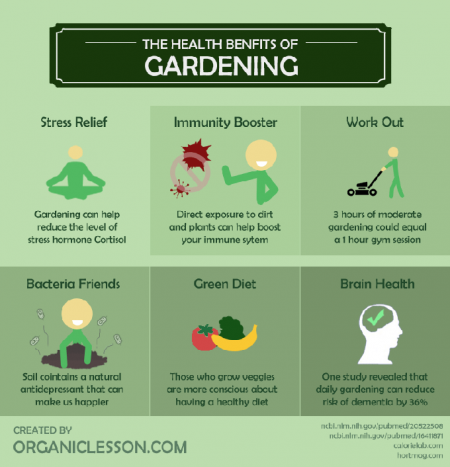Friends, I come to you with a rather bleak message: when it comes to learning how to eat sustainably, it’s now or never.
No, I’m not singing the chorus of everyone’s favorite Bon Jovi song. Sadly, these were the exact words of the Intergovernmental Panel on Climate Change (IPCC) Working Group in a recent United Nations climate report.
“It’s now or never, if we want to limit global warming to 1.5°C (2.7°F),” warned Jim Skea, co-chair of the IPCC Working Group. “Without immediate and deep emissions reductions across all sectors, it will be impossible.”
“It’s now or never, if we want to limit global warming to 1.5°C (2.7°F).” – #IPCC Working Group III Co-Chair Jim Skea on the release of IPCC’s latest #ClimateReport on the mitigation of #climatechange.
Watch the trailer 🎥 pic.twitter.com/rGbeuzLf9p
— IPCC (@IPCC_CH) April 4, 2022
In other words, if there’s any hope left in the fight against climate change, we must act immediately. Otherwise, noted the U.N. report, the earth will become uninhabitable.
There’s some good news, though: Earth Day is here! On April 22, climate-conscious people all over the world come together to support the environmental protection movement, and you can join the effort. From donating to an Earth Day project to attending a live event, there are plenty of ways to #InvestInOurPlanet.
View this post on Instagram
But our activism shouldn’t stop there. If we truly want to save our planet, we must commit to reducing our carbon footprint on a daily basis. This, of course, means making changes like limiting unnecessary travel, buying responsibly made clothing, and reducing water waste.
With the current surge of gas prices in this country, you don’t have to ask me twice to drive less. But if you still have a lengthy commute to work or shortening your showers seem extreme, there’s another simple way to practice sustainable living: you can tweak how you eat.
Don’t worry, fellow foodies, this doesn’t mean restricting or overhauling your entire diet. Rather, you can make a meaningful impact with a few small modifications to your meals.
How can you contribute to the cause and cut your foodprint? We asked registered dietitians to provide their food for thought. Here are 7 straightforward strategies to eat more sustainably, according to the experts:
How To Eat Sustainably
Eat More Plant-Based Proteins
Calling all carnivores: it’s time to cut back on your steak intake (even if just a little). That’s because emissions from livestock production, especially from beef and dairy cattle, represent 14.5 percent of human-induced greenhouse gas emissions.
“One way we, as consumers, can reduce our carbon footprint through food and eating is to include more plant-based proteins into our weekly meal planning,” recommends Caitlin Mudd, R.D., L.D.N. “I like to do this by choosing one day for a meatless meal, such as using beans in a soup or on a salad, or tofu with some rice and vegetables,” she says.
Plus, adding plants to your diet can provide extra health benefits. “Not only does swapping some animal-based protein options for plant-based proteins reduce your carbon footprint, but it also adds a variety of foods, nutrients, and satisfaction from your meals,” Mudd explains.
Support Local Farmers Markets
Spring is finally here — and that means the start of your Saturday farmers markets. Supporting your local farmers not only stimulates the economy, but helps to sustain the planet.
“Buying produce locally has two clear benefits to the environment,” explains DJ Mazzoni M.S., R.D., C.D.N., C.S.C.S. “The first is that the food is produced locally, so there is less of a carbon footprint associated. There is minimal transport associated with getting the food to you.”
“The second is that locally-produced food is often sold ‘loose,’ meaning without packaging,” Mazzoni says. “Much of the produce in traditional grocery stores is sold in plastic containers, and all frozen produce is sold in plastic.”
Avoid Plastic Packaging
Speaking of plastic, you should avoid it whenever possible, even at the grocery store. “We know from medical studies that plastic damages local ecosystems, so buying produce without plastic wrap is better for your health and better for the environment,” notes Mazzoni.
How can you be more mindful of your food’s packaging? Kaleigh McMordie, M.C.N., R.D.N., L.D. has some tips.
“If you can buy in bulk and use your own bags or jars, you reduce a lot of packaging waste,” McMordie recommends. “You can also look for food items with little to no packaging — like fresh fruits and veggies — or family size bags versus individual portions,” she says.
Reduce Food Waste
Food waste is another major contributor to your carbon footprint, because global food loss and waste generate greenhouse gas emissions. Specifically, discarded food that decomposes in landfills emits methane, which accounts for about 11 percent of all greenhouse gas emissions from human activity.
But we do have the power to cut into the problem. “One of my favorite tips to eat more sustainably is to make sure you’re not wasting food,” McCordie urges. “Food waste is a big problem in our own homes, but there are steps we can take to prevent food waste and reduce our carbon footprints,” she says.
McCordie offers the following advice:
-
Only buy as much food as you’ll realistically eat before it spoils.
-
Utilize your freezer to store anything that you won’t eat before it spoils. You can freeze any fruits or veggies for things like smoothies, stir-fries, or breakfast casseroles. There are also many other foods you can freeze, like bread, cheese, and even leftovers.
-
Stop peeling your potatoes, carrots, and apples. Unless you really need to peel for a recipe, those peels are not only nutrient-dense, but they add up when they go in the trash. (And bonus: you save time when you skip the peeling step!)
-
Compost any scraps that you end up with after cooking or eating.
Compost What You Can
Let’s talk more about composting, because it’s a key strategy that often goes overlooked. According to an analysis of sustainability solutions by Project Drawdown, composting organic waste — instead of throwing it in landfills — could reduce more than 50 percent of greenhouse gas emissions by 2050.
“Consider a countertop kitchen compost bin so you can dump your food scraps as you prepare your foods,” advises Lauren O’Connor, M.S., R.D.N, R.Y.T. “Composting encourages the production of beneficial bacteria to break down matter and transform it into nutrient-rich material you can use, as you would fertilizer, to promote a healthy garden,” she says.
Grow Your Own Food
Got grass? Grow a garden! Not only can transforming a lawn into a garden cut down on greenhouse gas emissions, but gardening is one of the healthiest hobbies you can do, both physically and mentally.
“If you have the space and green thumb to grow an extensive vegetable garden, go for it!” encourages Laura Speece, C.L.D., C.C.C.E., C.L.E., C.H.N., P.W.P. “If not, start with what you can grow. Lettuce does amazingly well in containers. Italian herbs like basil, oregano, and parsley grow quickly and only need minimal care. Start small, and as you see results and gain confidence, you’ll be inspired to do more!” she says.
Eat Seasonally Year Round
Shopping at your nearest grocery chain may be most convenient — but choosing local, seasonal produce can also reduce your foodprint. For instance, according to a report by the Center for Sustainable Systems, out-of-season production of tomatoes emits more greenhouse gas than production of organic, on-the-vine tomatoes.
“Purchasing seasonal foods is more environmentally friendly as it requires less transportation and refrigeration and the use of chemicals to ripen produce,” explains Shannon Jones, R.D.
Not sure how to make the switch from big-box berries to fresher fruits? Don’t worry — we wrote an entire article on how to eat seasonally last December, and the advice still applies during spring. (Bonus: we also prove that seasonal eating is best for your health!)
The bottom line: Even small, incremental changes to your eating habits can go a long way towards protecting the planet. Ultimately, making a difference through your diet is, well, a piece of cake — without the plastic packaging, and made from local ingredients, of course.

How will you observe Earth Day this year? Will you adopt any nutrition strategies to reduce your carbon footprint? Tell us in the comments!
Read These For More Ways To Live More Sustainably All Year Long:









